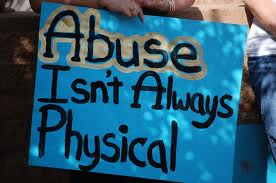How To Build Self-Confidence In Your Child
Self-confidence is a person’s belief in their abilities, qualities, and judgment. People with high self-confidence generally have a positive self-image and believe in their abilities. In contrast, those with low self-confidence may struggle with insecurity and self-doubt.
It’s important to remember that everyone has moments of self-doubt, and building self-confidence is a lifelong process. You can develop and strengthen your self-confidence with time, patience, and persistence.
Importance of Self Confidence
Self-confidence is essential for many reasons, including:
- Improved Mental Health: People with high self-confidence generally have a more positive self-image and are less likely to experience mental health problems such as anxiety and depression.
- Better Relationships: People with high self-confidence are often more assertive, have better communication skills and are better able to establish and maintain healthy relationships with others.
- Increased Resilience: Self-confidence can help people handle challenges and setbacks more positively and productively, leading to increased resilience and better coping skills.
- Improved Decision-making: People with high levels of self-confidence are often better able to make decisions, as they have a clearer sense of their abilities and beliefs.
- Increased Motivation: Self-confidence can increase a person’s motivation and drive, as they have a greater belief in their abilities and are more likely to take on new challenges and pursue their goals.
- Better Performance: People with high self-confidence tend to perform better in various areas, including academic, athletic, and professional pursuits.
Tips for Building Self-confidence in your Child
Building a child’s self-confidence is an integral part of their overall development. Here are some tips for helping your child develop and maintain healthy self-confidence:
Encourage Effort and Persistence
Rather than focusing on the outcome, praise your child for their effort and persistence. This helps them see the value in trying their best, regardless of the result. And when they fail, help them understand that failure is also a pathway to success. Facing challenges and fears will increase their self-confidence and resilience
Celebrate their Achievements
Celebrate and acknowledge your child’s accomplishments, no matter how small they may seem. This reinforces their sense of self-worth and helps build their confidence.
Provide Opportunities for Success
Provide your child with opportunities to experience success and mastery, whether it’s through sports, music, art, or academics. Allow your child to take on new challenges and responsibilities and give them the freedom to make mistakes and learn from them.
Taking on new challenges and learning new skills can help build self-confidence by demonstrating your abilities and increasing your competence. Encourage them to set realistic and achievable goals that can make them feel in control and increase their self-confidence
Provide a Positive Environment
Surround your child with positive and supportive people, and create an environment that is safe and encouraging. Practising positive self-talk can help your child feel safe to express themselves. Teach your child to practice positive self-talk and help them recognize and challenge negative self-talk.
Support their Interests
Encourage and support your child’s interests and passions, and help them see the value in pursuing what they love. It’s common for children to have different interests, but supporting them through it all will help build their self-confidence.
Remember, building self-confidence takes time and patience. One of your roles as a parent is to help your child develop resilience and coping skills and encourage them to bounce back from setbacks and failures. You can help your child develop a strong sense of self-worth and confidence by providing a supportive and encouraging environment.
In summary, self-confidence is vital to a person’s overall well-being and success. Individuals can improve their mental and emotional well-being and believe in themselves by developing a healthy level of self-confidence.






